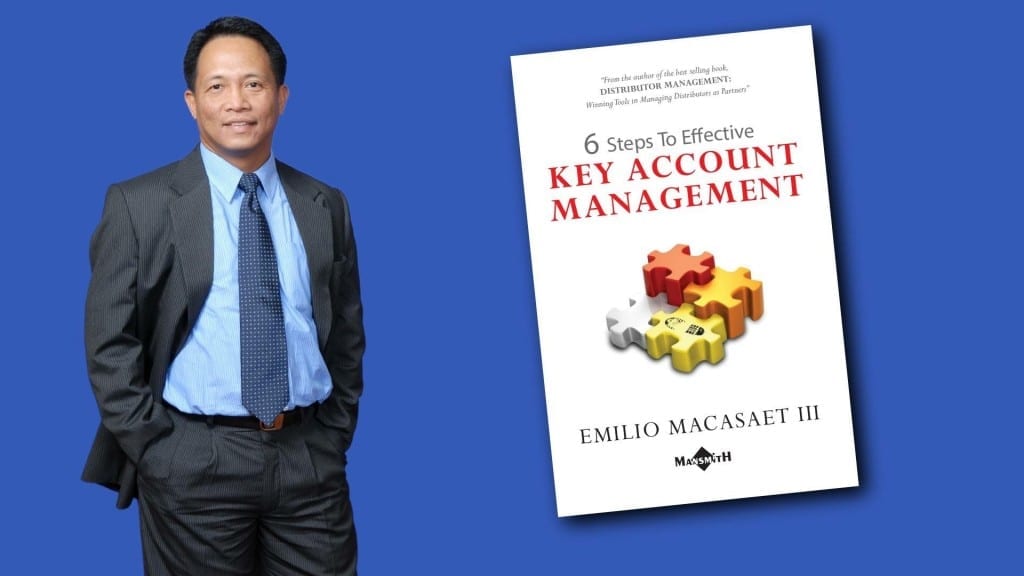
Q1: You work very hard. How did your childhood influence your work ethics today?
A: I would always joke that while some of my classmates were born with a silver spoon, I was born with a wooden chopstick. I am a 4th generation OFW, my grandfather, aged 8, took a small rickety boat together with my great grandfather and braved the South China Sea to find a better future here in the Pearl of The Orient Seas. Unfortunately, my family did not become wealthy Chinese Tycoons like what you see in the Philippines Forbes Billionaire list. My grandfather was a stevedore working for rich Chinese traders, and my parents were sales persons. My parents sold everything they can get their hands on to survive the family, from encyclopedias, perfume, vacuum cleaner to many miracle products. I and my three siblings are forever grateful to my parents for giving so much of themselves to give us a good life and education.
Growing up with salesman-parents has its share of ups and down. My parent’s income is not consistent and steady. I remember days where I would ask my parents for Jollibee, they would bring me and my sister there but only order for two pcs of Chickenjoys. I would ask my mom why they did not order 4 pcs and their reply was they were full. It is only when I grew up that I was able to connect that finances was tight and my parents were willing to sacrifice so that we can have our meal.
Growing up in an environment where things did not come by easy makes you dream. Wearing old beat up tight shoes for school, going hungry and not able to buy the hotdog in your school cafeteria, hearing your parents having arguments about money makes you strive to work hard and find a better life situation.
Q2: How did you become one of the youngest sales directors of Ayala Land?
A: Hardwork, timing and of course, God’s blessing worked hand in hand to allow me to become one of the youngest Sales Director of Ayala Land. My luck started last 2003, when Ayala was in expansion mode for a new Sales Manager, I was 24 years old that time and had just closed some property transaction that caught the attention of my superiors. First time my boss offered me the managerial position, I declined out of fear. After a few months when they offered me the position again I accepted. I was to assume my new sales manager position on Jan 1, 2004, Four days after tying the knot with Jenny, and four days after moving into our new home.
It was a good year of fresh starts.
Q3: You used your architectural background to your advantage in marketing real estate properties. Has there ever been a disadvantage?
A: Having an architectural and technical background plus work experience with Architect Jun Palafox is a big value add for my work in real estate marketing. It allows me to give my clients a vision of how they can design their future primary house or dream seaside vacation house. I am also able to give tips and spot good layout in condominium properties that can make their condo unit stand out in the leasing market. So far, the added architectural background I have has always been a value to my clients and has not worked as a disadvantage for me.
Q4: What have been your lessons in terms of what worked and what didn’t in building an independent sales team?
A: THE ENABLER LEADER – A good sales team leader enables his team to shine and work at their peak performance. The enabler-leader provides whatever is needed for the sales team to shine both technical and inspirations. The enabler-leader puts the spotlight on his team and lets his team shine and have the spotlight. The enabler also inspires by sharing a vision, and letting the individual have autonomy to figure out how their strategies to reach that vision.
THE HALL MONITOR LEADER – Being very strict, chronicling activities of the sales people puts down independence and morale of the sales team. The hall monitor-leader puts himself on top before his team. There is no genuine concern nor empathy on the individual, just process, procedures and quota.
Q5: What have you discovered about motivating an independent sales force?
A: KNOW YOUR PEOPLE’S WHY – Yes, money is a good motivator, but understanding why your sales force wants the money, is a big motivating factor. Is it money to cover for an elderly parent, money for a sick family member, money to give their family a better future, money to pay off past debts, money for charity and be a blessing to others etc. It is also important to KNOW YOUR TEAMS’ LOVE LANGUAGE. It can be in the form of affirmation through words, quality time spent with them, acts of service like helping out to get a project done, tokens or gifts of appreciation and last but not the least – physical touch like a pat on the shoulders or a sincere handshake.
Q6: What about successful sellers vs. those who have tried but didn’t make it? What made them different?
A: Selling is both Science and Art. Successful sellers are able to diligently follow the science of selling which is to work on the numbers and have a systematic follow through system. He must be able to present his product well, line up the advantages and benefits of his product and able to show how his product is the most ideal solution to the clients’ problems. He must also be able to measure his monthly or weekly productivity, chopping activities down to a daily must do activity list and is a good organizer.
Being able to mix 50% science to 50% art is the best recipe for sales success. Highly accomplished sales people are able to build deep relationships with their clients. They understand the source of pain and gratification of their client, understand their client’s priorities, their motivation and is able to fit in their product as a sincere solution to the client’s needs. They are also great storytellers who has the unique ability to connect with their clients’ heart and inspire them to want something better.
Q7: What made you set up your own company?
A: I learned my life motto from Josiah Go “To be better than before, better than others & better than expected”. Starting from an entry level position in Ayala Land during my mid 20’s, up to being the youngest sales manager and sales director in my early 30’s, The natural next step for me was to be entrepreneurial and put up my own company. Filipino Chinese are known to be entrepreneurial, and after working in corporate for more than a decade. I realized that there are strategies I want to execute and business risk I want to take on that I can freely do only if I own my own company. Together with my sister Icel Dy, we put up Spectrum Investments last Aug 2013. Attending Mansmith and Fielders’ 2-day Business Model Innovation also helped guide me through this transition stages. I highly recommend people putting their own business or transitioning from corporate to entrepreneur to take this 2-day course before making any major decisions.
Another big factor was also family. My corporate work needed me to spend long hours in the office and on project sites, not only during week days but also on weekends. With a 3rd baby on the way, and 2 daughters ages 5 and 4 growing up. I decided my priority for this season in my life is to have the flexibility of time to be with my kids, to nurture my role as a dad and husband. My eldest is now turning 8 and so far I have seen how our relationship grew and how I am now more involved in their lives.
Q8: What were some hard-to-forget failures in marketing or business which you can share to our young readers and what are some lessons that you have learned from them?
A: SELLING THE PRODUCT AND NOT THE SOLUTION – This is a very basic mistake that I see a lot of sales people make. Focusing on the long list of features of a property without connecting it to how your client will benefit from it. Try to find the reason or motivation on why your client agreed to your presentation. Once you can find that one big pain point and offer your product as a solution, closing deals will come naturally.
FOCUSING ON HANDLING OBJECTIONS – We are taught in sales to handle client objections, to the point that some sales people look forward to clients objecting, so they can bring out their war chest of reasons why their product is good. An ideal good sales pitch is where the potential objections are already answered early on in the presentation, only clarifications are left at the end for Q & A.
PRESENTING WITHOUT THE INTENTION TO CLOSE – Many sales people will go to a client telling them that this is just a presentation and is not a sales pitch. On the flipside, I think customers now would rather hear that you will ask for 30 minutes of their time, to present your product and hopefully convince them that your product is able to give value or solve their problems. You can also humbly set the stage of your intention to close the deal and add them up soon in your happy client’s list.
Last but not the least is to BE HONEST – There is a very big difference if you enter a meeting putting yourself first, aiming to close a deal, thinking of your bottom line and your quota, as compared to entering a meeting aiming to build relationship and offering your product as a solution to a problem of your client. If you have your clients interest’ as a priority, there will be days where you will not close the deal because of a mismatch. But don’t feel bad, continue to nurture the relationship, who knows it may lead to a successful referral.
An honest heart leads to honest actions.
Do not focus on Money.
Money is just a by-product of good actions, good habits and good intentions.
Aim to be successful so we can be an inspiration and blessing to others.

